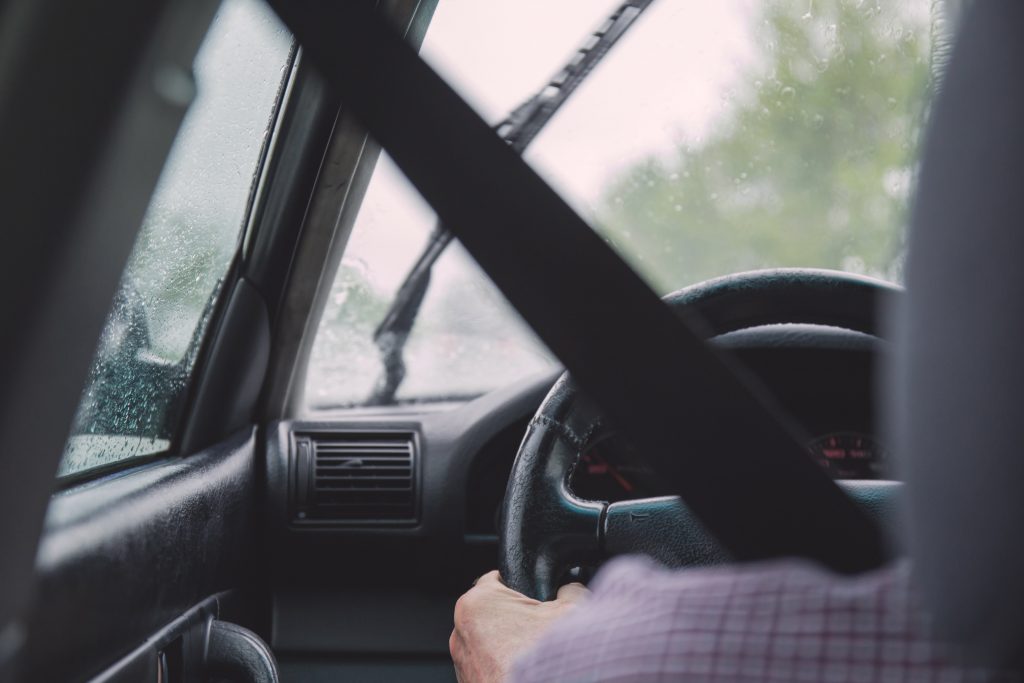Drivers license ballot question hinges on how much legitimacy voters want to give immigrants

A ballot referendum that could topple or preserve a controversial state law passed by the Massachusetts Legislature this year revolves around how much recognition Bay Staters want to give to immigrants who are here without lawful presence, a new report postures.
Ballot Question 4 asks voters whether they want to keep the Work and Family Mobility Act, which would allow unauthorized immigrants to obtain state drivers licenses, intact before it takes effect in July 2023. Gov. Charlie Baker, a vocal critic of the bill, vetoed it an expected maneuver the Legislature overwhelmingly overrode.
Repealing the legislation would perpetuate the status quo in the commonwealth while upholding it could bolster public safety and make it easier for immigrants to complete daily tasks, including driving to work, proponents of keeping it argue.
Implementing the law should be straightforward, as Massachusetts trails behind 16 other states that already have similar provisions on the books, asserts the report released Thursday from the Center for State Policy Analysis at Tufts Universitys Jonathan M. Tisch College of Civic Life.
Drivers licenses would not only give unauthorized immigrants in Massachusetts the right to drive legally, they would also provide a new kind of official recognition in the form of a state-issued document that affirms their identity without reference to their legal status, the report states.Read more: Massachusetts Republicans laud referendum effort to repeal controversial immigrant drivers license law as thousands of signed petitions are certified
For opponents, such formal recognition can seem inappropriate, considering that the federal government controls immigration policy and unauthorized immigrants lack the lawful authority to be in the country, the report continues. By contrast, supporters may count this as a step toward greater acceptance of immigrant families, making it easier to drive and also smoothing mundane interactions like presenting ID to enter a building or to purchase behind-the-counter medications.
Opponents of the drivers license bill, including Baker, are fearful that immigrants without lawful presence will be erroneously registered to vote at the Registry of Motor Vehicles. But Secretary of State Bill Galvin has rebuked Bakers concern as baseless, saying the Work and Family Mobility Act would not trigger automatic voter registration procedures at the RMV.
The RMV already handles cases of people who are eligible to drive but not vote including lawful immigrants with green cards and new drivers under 18, the report from the Center for State Policy Analysis states. The same approach could be adapted for unauthorized immigrants.
The report, which strikes a neutral stance on Ballot Question 4 overall, also contends the RMV should not have difficulty verifying foreign identification documents, such as passports despite another major concern cited by the laws opponents.
Proponents of the immigrant drivers license bill say it will increase public safety, a claim thats affirmed by the new report. Immigrants who are currently driving illegally could be law-abiding drivers who enroll in drivers education classes, register their cars and buy auto insurance.Read more: Healey, Driscoll visit to Latino-owned businesses highlights huge economic engine in Mass.
Having a license would also make these drivers more likely to heed police requests and share information after accidents without the risk that fender-benders and traffic violations would trigger immigration enforcement, the report states. Allowing these folks to get drivers licenses could generate some economic benefits, including a boost in car sales and increased state revenue from license and registration fees at the RMV and additional taxes paid by unauthorized immigrants with expanded work schedules. But the economic impact is likely limited.
Immigrants could face a new set of risks, particularly surrounding data privacy, under the new state law. Organizations and agencies with anti-immigration views may attempt to access peoples digital records from the RMV about drivers license applications, which would contain disclosures about their ineligibility to vote.
RMV records are not public, the report states, but they may need to be released under actions by the federal government or attorney general. Hackers could break into confidential information, as well, the report points out.
So while the risk that drivers license records will be used to track unauthorized immigrants is hard to pin down, it isnt imaginary, the report states. Other states with similar programs have indeed shared information with U.S. Immigration and Customs Enforcement. If Question 4 passes, unauthorized immigrants will need to decide for themselves whether the benefits of having a license outweigh these risks. And support for this law from many immigrants rights groups suggests a general comfort with the trade-off.Read more: AG candidate Andrea Campbell vows to uphold Mass. abortion access
If Bay Staters this November vote to repeal the Work and Family Mobility Act, unauthorized immigrants will continue to lack the ability to legally drive themselves to run errands or doctor appointments.
Yet by persisting with the status quo, immigrants will keep driving without a license or insurance, the report states.
A no vote would also signal voters broader discomfort with expanding rights for unauthorized immigrants in Massachusetts, which could limit other efforts in this same direction, like the push for certain tax credits, the report states.




